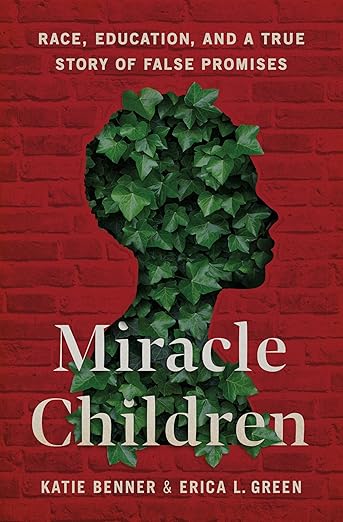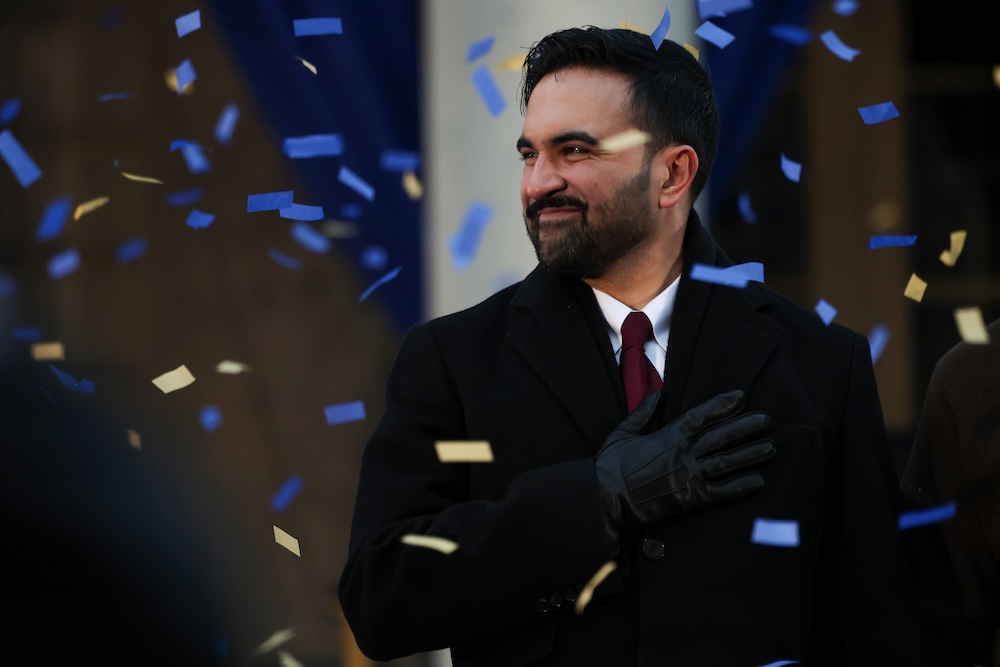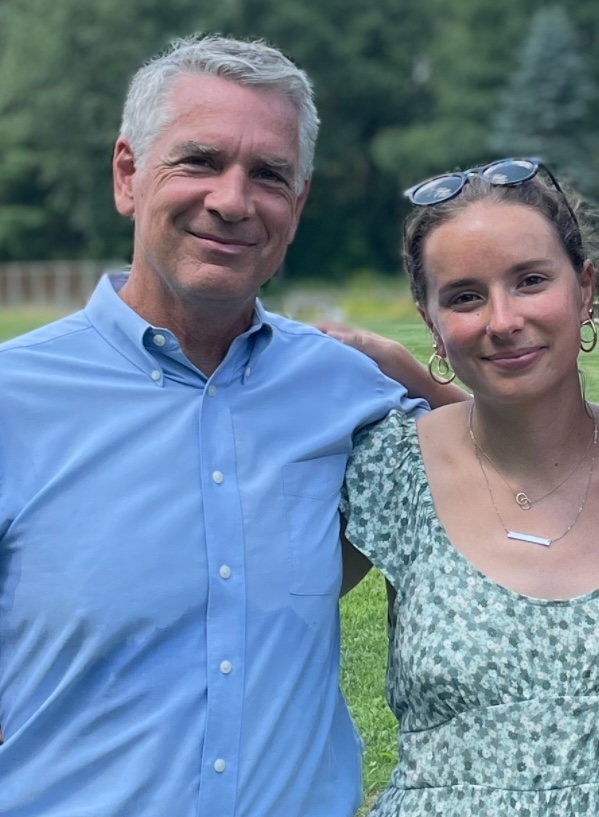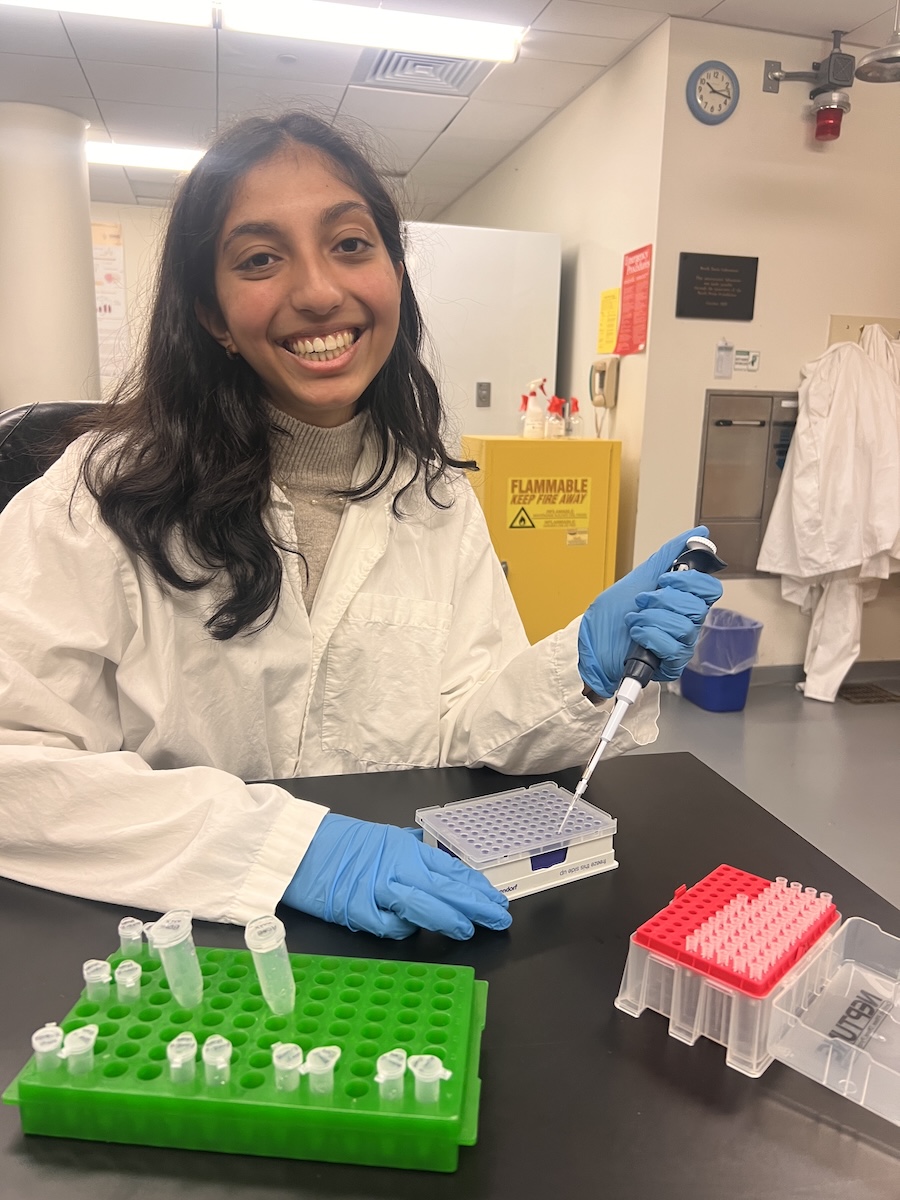Graduating Early from Med School, Elizabeth Owens ’14 Joins COVID-19 Frontlines
By Rebecca GoldfineWhen New York University asked its fourth-year medical students whether some would like to graduate early so they could join hospital staff overwhelmed by COVID-19 patients, Elizabeth Owens ’14 sent back "an immediate yes," she said.
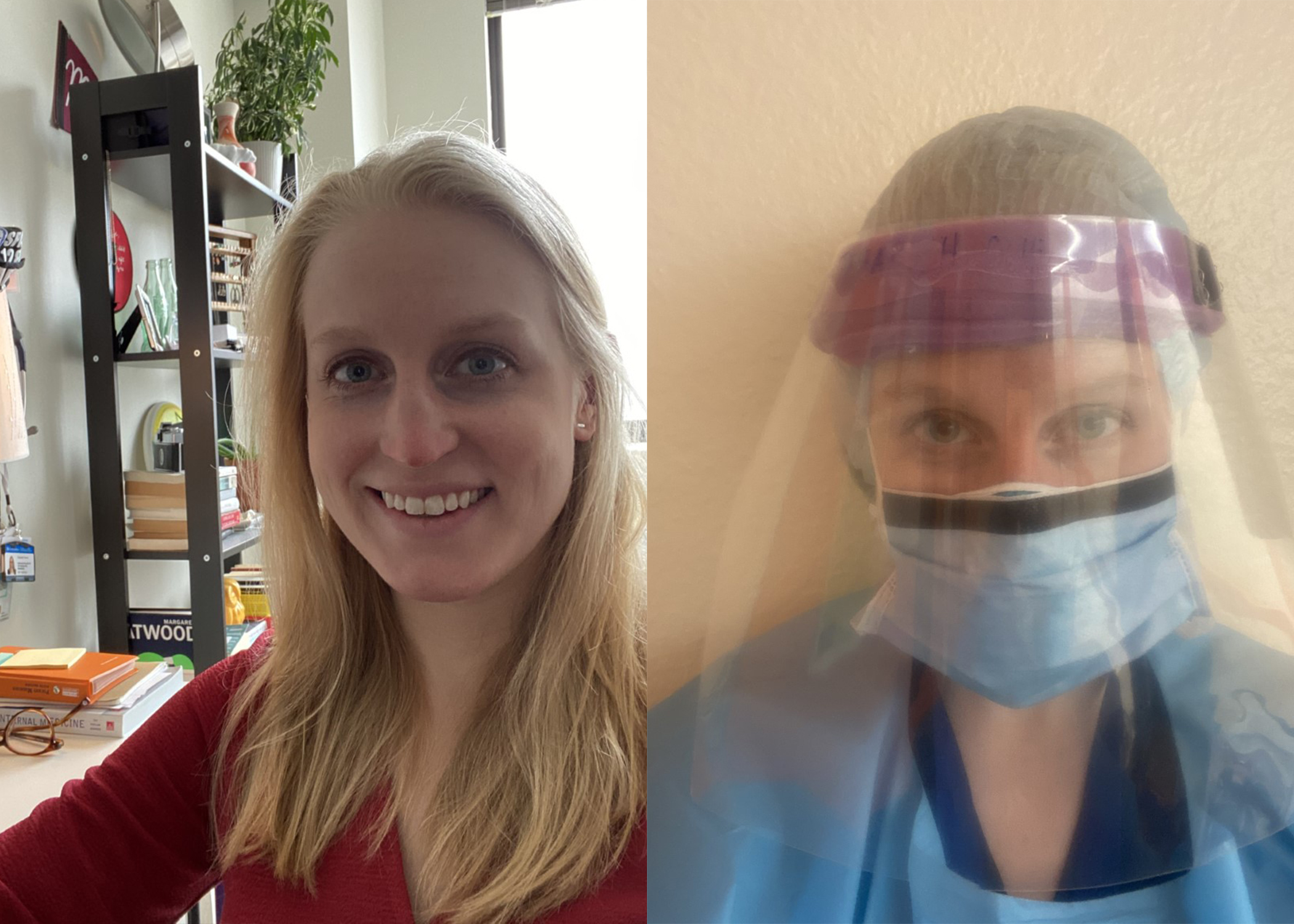
With more than fifty of her classmates from NYU Grossman School of Medicine, Owens participated in a "stirring, ragged" graduation ceremony online—an event covered by The New York Times. The ceremony took place April 3, two months ahead of schedule.
About a week later, Owens was working as an intern at Bellevue Hospital in Manhattan, where almost every bed is occupied with a patient suffering from COVID-19.
"It was not how I imagined I would start!" Owens said. "But we were all ready and wanted to help out and step up."
Before she began at Bellevue, on April 13, she completed a weeklong intensive orientation, practicing advanced life support and learning the hospital's new COVID-19 safety protocols. Then she started a four-week stint on one of Bellevue's medical floors—which she has recently agreed to extend an additional two weeks.
Working six days a week, in twelve-hour shifts, Owens is helping to care for approximately fourteen COVID-19 patients. Though they are stable—that is, they do not need to be in the ICU—Owens said there are challenges caring for them because treatment is limited to providing oxygen, antibiotics, and hydroxychloroquine—interventions that physicians are unsure even help the disease.
Also, to avoid exposure to the virus, hospital staff must limit their visits in patient rooms, and they can't provide the amount of encouragement or interaction they would normally offer.
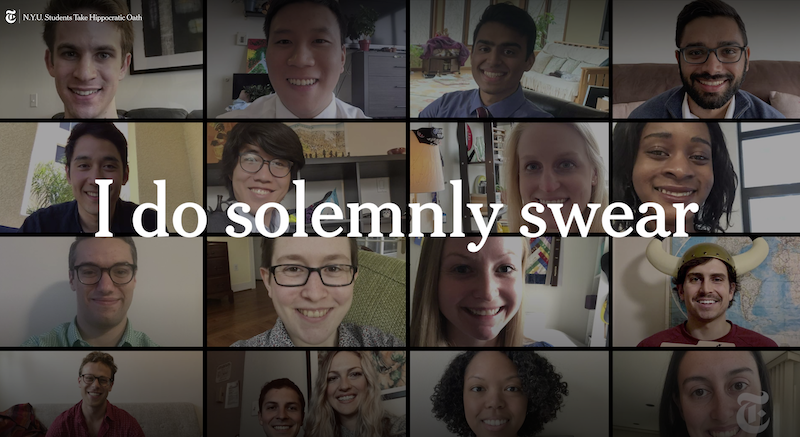
"It's very hard on the patients," Owens said. But a philanthropist recently purchased several iPads and phone chargers for Bellevue, allowing patients to videoconference or chat online with their families. (The chargers are needed because many patients, in the haste of getting to the hospital, forget to bring their own.)
Though she is working right now in the area of internal medicine to care for COVID-19 patients, Owens has matched into a psychiatry residency program at Zucker Hillside Hospital in New York, beginning July 1. But she says she has been surprised by how comfortable she feels working at Bellevue.
"I am very well trained by NYU, and I feel more confident than I thought I would in taking ownership of patient care and helping them," she said.
She is also fortified by her hospital colleagues, who, though exhausted, are more supportive than ever. "I think everyone is tired," she said. "It has been physically and emotionally difficult for a lot of people. But everyone is coming together at the hospital—doctors, nurses, hospital staff, and interns. We're all fighting this collectively."
She also is touched by the generosity of classmates at NYU, who in the past months have scoured the city for personal protectice equipment (PPE) from places like tattoo parlors and veterinary clinics. They often put together care packages for hospital staff and offer to do their grocery shopping and laundry.
Local businesses have been kind and helpful, too. Restaurants regularly deliver free meals throughout the day, including dinner for hospital staff working overnight.
Finally, "the 7:00 p.m. cheer is really nice," Owens said, referring to the moment at the end of the first hospital shift when New Yorkers all over the city lean out of their windows to cheer and bang pots to applaud health care workers going home. "It happens every night. It hasn't diminished; it's still as strong as ever."
